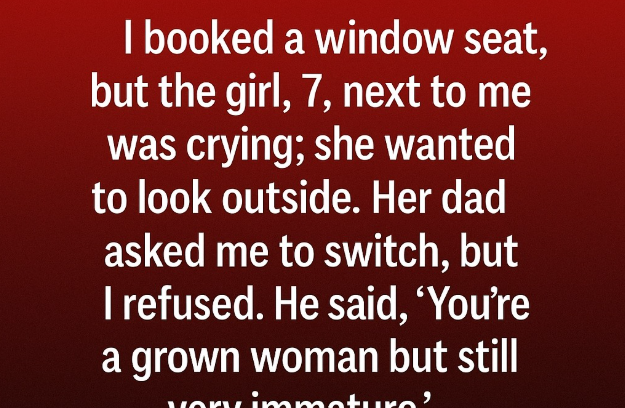I had thoughtfully reserved a window seat well in advance of the flight, a small reward for myself after a demanding year of relentless effort. As I settled into my seat on the plane, I noticed a young girl, about seven years old, seated beside me with her father. Her eyes sparkled with curiosity as she peered toward the window, clearly eager to catch a glimpse of the world outside. As the plane began to roll down the runway, soft whimpers escaped her, her longing to see the view beyond the glass evident.
Her father leaned closer to me, his tone warm and respectful, and asked if I’d consider swapping seats so his daughter could enjoy the window view. With a gentle smile, I explained that I had specifically chosen this seat for myself well in advance. He let out a quiet breath, then murmured, “You’re an adult, yet you’re acting quite selfishly.” His comment pricked at me, but I stood by my decision. For much of the flight, the girl’s quiet sobs lingered in the air, creating a subtle tension among the passengers nearby.
Halfway through the flight, a flight attendant approached with a warm, reassuring smile and invited me to step to the back of the plane for a brief moment. My pulse quickened, wondering if I had somehow erred. But in the galley, her words caught me off guard—she thanked me sincerely. She shared that passengers often feel pressured to give up their carefully made plans, and it’s perfectly reasonable to uphold your own choices. Her encouragement melted away the unease that had been building since we took off.
When I returned to my seat, I saw that the father had creatively engaged his daughter with imaginative stories and playful games. Her tears had dried, and a sense of calm had settled over the cabin. In that moment, I understood that holding firm to your choices doesn’t equate to unkindness—it’s about respecting your own needs. And often, when others find their own way to adapt, a natural harmony emerges.






